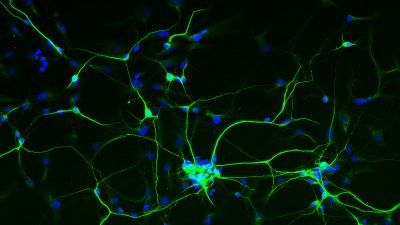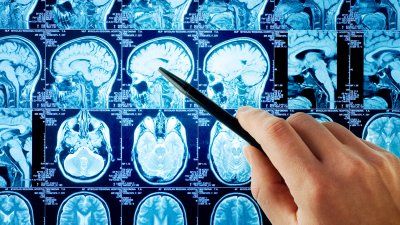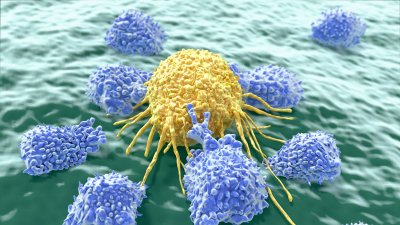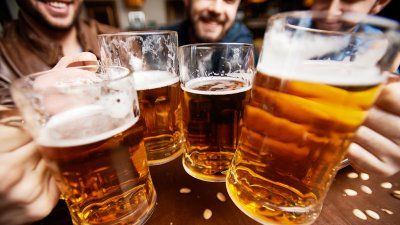Distinguishing Between Dementia and Depression with Neuroimaging
Neuroimaging is helping to distinguish between depression and dementia – two diseases with overlapping symptoms that can be difficult to diagnose properly.

University of California San Francisco
Give to UCSFNeuroimaging is helping to distinguish between depression and dementia – two diseases with overlapping symptoms that can be difficult to diagnose properly.

Studying brain disorders is complicated for many reasons, not the least being the ethics of obtaining living neurons. To overcome that obstacle, UCSF postdoc Aditi Deshpande is starting with skin cells.

UCSF is the lead institution on a California-based, six-university consortium that was awarded $12 million by the NIDCR to develop strategies for treating craniofacial and dental defects.

Sharks, rays and skates can hunt for prey hidden in the sandy sea floor by “listening” for faint traces of bioelectricity – they can literally sense their prey’s heart beating.

In an unprecedented leap from lab to patients, a potential treatment for childhood epilepsy identified in experiments with zebrafish.

New research is paving the way to a precision medicine approach to the diagnosis and treatment of patients with traumatic brain injury.

A molecular key to aging of the blood and immune system has been discovered in new research conducted at UCSF.

A picture may be worth a thousand words. But new imaging technology that harmonizes mighty and distinctive microscopes may tell a complex story about a disease or condition – how it develops and how it can be treated precisely

The mammalian placenta is a sort of armored car protecting a developing fetus. All manner of infectious agents attempt to break in, but few of them can. Scientists are working to understand why some infections do break through and how to stop them.

The chromosomal “balance” of normal and abnormal versions of the cancer-driving gene KRAS affects the response to targeted treatments.

A type of herpes virus that infects about half of the U.S. population has been associated with risk factors for type 2 diabetes and heart disease in normal-weight women aged 20 to 49.

The genome of the single-celled organism Stentor, recently sequenced by researchers, may help lead to new insights about how to help our own cells and tissues recover from injury.

A $22 million investment via California State Assembly Bill 2664 is supporting innovation and entrepreneurship at UC San Francisco and across the University of California system.

Scalp cooling can lessen some chemotherapy-induced hair loss – one of the most devastating hallmarks of cancer – in certain breast cancer patients, according to a new multicenter study from UCSF, Weill Cornell Medicine and three other medical centers.

Research uses brain “organoids” — tiny 3D models of human organs that scientists grow in a dish to study disease — to identify root causes of MDS, a rare genetic disorder that causes fatal brain malformations.

UCSF’s Resource Allocation Program, which offers a single online application process for a wide variety of intramural funding opportunities, is now inviting applications for the Spring 2017 cycle.

A nationwide project that includes two UCSF researchers will use the latest technology, including gene editing, to gain insights into human biology that could one day lead to treatments for complex genetic diseases.

Women whose breasts are composed largely of glandular tissue, rather than fat, have an amplified risk of breast cancer, which exceeds the impact of other widely known risks on a population level.

Poor performance on a simple odor identification test was associated with a significantly increased risk of developing dementia years later.

A new study identified genetic predictors of normal prostate-specific antigen (PSA) levels in healthy men, which could be used to improve the accuracy of PSA-based prostate cancer screening tests.

Distinct sets of genetic defects in a single neuronal protein can lead either to infantile epilepsy or to autism spectrum disorders.

HIV-positive people and people with type 2 diabetes, who received healthy food and snacks for six months were more likely to adhere to their medication regimens, were less depressed and less likely to make trade-offs between food and healthcare.

A common treatment for irregular heartbeats known as catheter ablation may result in the formation of brain lesions when it is performed on the left side of the heart.

For concussion sufferers, physicians may now be able to predict early on who is more likely to continue experiencing symptoms months or years after the head-jarring event.

E-cigarettes – thought by some to be responsible for a decline in youth cigarette smoking – are actually attracting a new population of adolescents who might not otherwise have smoked tobacco products.

Study suggests, genetic variants that have distinct effects on physical traits in men versus women are also linked to men’s and women’s risk for a range of diseases – autism, multiple sclerosis, type 1 diabetes.

UCSF study demonstrates that nucleosomes actively change their shape as part of the larger process of epigenetic regulation of gene expression.

New research has found that successful cancer immunotherapy appears to depend on whether the treatment can trigger a system-wide immune response, rather than just a local response within the tumor itself.

Key members in the UCSF Science Policy and Strategy Group, as well as the Government Relations Office, discuss faculty concerns around decreased federal funding for biomedical research and advanced patient care, or the elimination of such funding altogether.

Alcohol consumed during just seven weeks of intermittent binge drinking harms the liver in ways that more moderate daily drinking does not.
